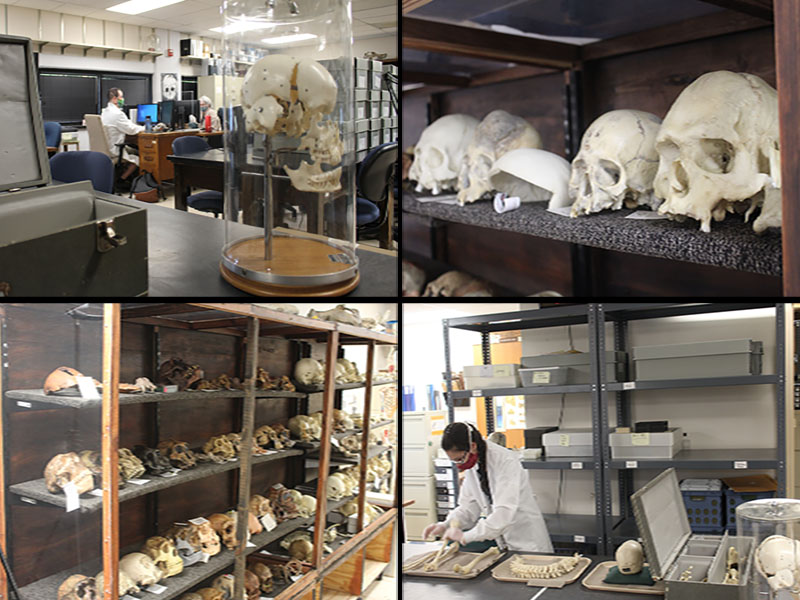Biological Anthropology
Biological anthropology, also called physical anthropology, is the subfield of anthropology that focuses on the study of humans as organisms. Biological anthropologists conduct research to document and explain the biological variation seen among current human populations, trace our evolutionary lineage through time in the fossil record, and understand human uniqueness through an evolutionary perspective of comparing our species to other living primates.

The Branches
The subfield of biological anthropology itself is further divided into several branches which often overlap. These branches also share the same application and/or perspective of evolutionary theory to understanding human biology and behavior.
- Paleoanthropology: the study of human evolution through fossilized remains of hominids and near relatives.
- Primatology: the study of nonhuman primates - apes, monkeys, and prosimians.
- Forensic anthropology: specializes in the application of skeletal analysis and techniques to estimate age, sex, stature, and ancestry to aid law enforcement in the identification of human skeletal remains in a medico-legal setting.
- Skeletal biology: study of anatomically modern humans from archaeological sites to understand the diseases and living conditions of these past peoples.
The branches listed above are just a few of the many areas that biological anthropology envelopes.




